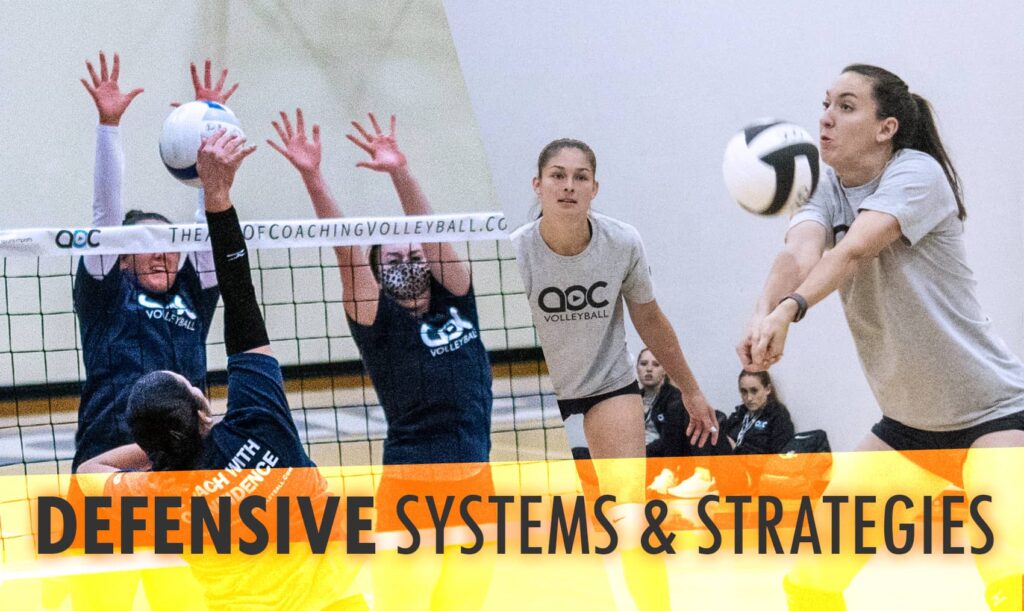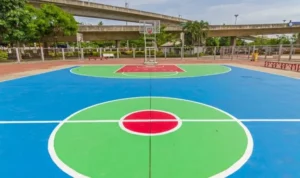To be a line judge in volleyball, learn the rules and positioning required for accurate calls. Volleyball line judges play a crucial role in ensuring the fairness of the game.
As a line judge, your responsibility is to make accurate calls on whether the ball lands inside or outside the court boundaries. To become a line judge, you need to familiarize yourself with the rules and positioning requirements. This includes knowing the various lines on the court and understanding the different signals used by the referee.
Additionally, practice your ability to quickly observe and make split-second decisions. By mastering these skills, you can contribute to the smooth and fair conduct of volleyball matches as a line judge.
Table of Contents
ToggleUnderstanding The Role Of A Line Judge
Understanding the Role of a Line Judge
Line judges play a crucial role in volleyball matches, ensuring fair play and contributing to the smooth running of the game. As a line judge, you are responsible for assisting the referee in making accurate and timely calls on line-related infractions. This subheading will dive deeper into the importance of line judges in volleyball matches, as well as the specific responsibilities and requirements one must fulfill to be an effective line judge.
Importance Of Line Judges In Volleyball Matches
In the fast-paced and competitive world of volleyball, having line judges is essential to maintain the integrity of the game and provide impartial decisions. The following points highlight the significance of line judges:
- Precise Call-Making: Line judges ensure accurate calls by determining whether the ball lands in or out of bounds. Their calls help in preventing disputes among teams and maintaining a fair playing field.
- Enhanced Referee Focus: By assisting the primary referee, line judges allow them to concentrate on other aspects of the game, such as player conduct and overall game management.
- Efficient Time Management: With line judges accountable for line-related decisions, the game progresses smoothly, minimizing delays caused by lengthy discussions on disputed calls.
Responsibilities And Requirements Of A Line Judge
Becoming a line judge requires a strong understanding of the game and the ability to make quick, accurate judgments. The following are key responsibilities and requirements for aspiring line judges:
| Responsibilities | Requirements |
|---|---|
|
|
Being a line judge is an honor and responsibility. Your decisions impact the outcome of the game and contribute to maintaining the fairness and integrity of the sport. By understanding the importance of line judges in volleyball matches and the specific responsibilities and requirements, you are well on your way to becoming an effective line judge.
Developing The Necessary Skills And Knowledge
Developing the Necessary Skills and Knowledge Familiarizing yourself with official volleyball rules and regulations To be a successful line judge in volleyball, it is crucial to familiarize yourself with the official rules and regulations of the game. Understanding the rules will provide you with the foundation needed to make accurate and informed line calls. A solid grasp of the rules will also enhance your credibility among players, coaches, and spectators. First and foremost, take the time to thoroughly read and understand the official volleyball rulebook. The rulebook covers various aspects of the game, including scoring, substitutions, rotations, and violations. By familiarizing yourself with these rules, you will be equipped with the knowledge necessary to make correct calls during matches. In addition to reading the rulebook, consider attending training sessions or workshops specifically designed to deepen your understanding of volleyball rules. These sessions often provide practical examples and scenarios, allowing you to apply your knowledge in a real-life context. Interactive discussions with experienced officials can prove invaluable in gaining a comprehensive understanding of the rules. Understanding the various types of violations and infractions Once you have solidified your understanding of the rules, it is essential to delve into the various types of violations and infractions that can occur in volleyball. This knowledge will enable you to accurately identify when a player has committed an infraction and make the appropriate call. In volleyball, violations can range from minor foot faults to more significant infractions, such as illegal substitutions or improper rotation. It is essential to familiarize yourself with the specific rules surrounding these violations and their corresponding consequences. Create a table outlining the different violations with a brief description and their corresponding consequences: | Violation | Description | Consequence | |———————————-|——————————————————————|———————————-| | Foot Fault | Stepping on or over the baseline while serving | Loss of serve | | Carrying or Palming | Excessive contact or prolonged ball contact by a player | Point awarded to opposing team | | Illegal Substitution | Substituting a player without following proper protocol | Point awarded to opposing team | | Improper Rotation | Players not adhering to the correct rotation order | Point awarded to opposing team | | Net Violation | Touching the net during game action | Point awarded to opposing team | | Ball Handling Error | Improper contact with the ball during a set or attack | Point awarded to opposing team | Learning to make accurate and consistent line calls Being able to make accurate and consistent line calls is one of the primary responsibilities of a line judge in volleyball. This skill requires practice, keen observation, and attention to detail. To develop your line judging accuracy, dedicate time to observing live matches, whether in person or via recorded videos. Pay close attention to the interaction between players and the lines, and practice mentally judging whether the ball contacted the line or landed out of bounds. This process will help you train your eye to make accurate calls during actual matches. Consistency is key when it comes to line judging. Aim to make calls in a consistent manner, following the same criteria for every similar situation. This approach helps build trust among players, coaches, and referees, as they will recognize your ability to make objective and impartial decisions. By developing the necessary skills and knowledge in volleyball rules and regulations, understanding the various types of violations and infractions, and learning to make accurate and consistent line calls, you will be well on your way to becoming a proficient and respected line judge in the exciting world of volleyball.
Training And Practicing As A Line Judge
Becoming a proficient line judge in volleyball requires a combination of theoretical knowledge and practical experience. While learning the rules and regulations is crucial, applying them accurately on the court is equally important. In this section, we will explore three key steps to help you hone your line judging skills: finding local officiating clinics and courses, participating in practical training sessions and mock matches, and receiving feedback and guidance from experienced officials.
Finding Local Officiating Clinics And Courses
To kickstart your journey as a line judge in volleyball, it’s essential to find local officiating clinics and courses. These educational programs provide a solid foundation in the rules, mechanics, and responsibilities of a line judge. Here’s an overview of the steps you can take:
- Search for local volleyball associations or federations in your area that offer officiating clinics and courses.
- Visit their websites or contact them directly to inquire about upcoming training opportunities.
- Enroll in the appropriate clinic or course that suits your skill level and availability.
- Attend the sessions diligently and engage with the instructors to clarify any doubts or questions.
By actively participating in these clinics and courses, you can gain a solid understanding of the rules, court positioning, signaling techniques, and other essential aspects of line judging.
Participating In Practical Training Sessions And Mock Matches
While theoretical knowledge is necessary, practical experience is where you truly sharpen your line judging skills. After acquiring the foundation through officiating clinics and courses, it’s time to get hands-on practice. Practical training sessions and mock matches provide the ideal environment for refining your skills and gaining confidence. Here’s how you can get involved:
- Join local volleyball clubs or teams that organize practice sessions and friendly matches.
- Express your interest in becoming a line judge and request opportunities to officiate during these events.
- Coordinate with coaches, captains, or team managers to ensure you are assigned as a line judge on a regular basis.
- During these sessions and matches, focus on applying the rules accurately, maintaining proper court coverage, and making timely decisions.
Practical training sessions and mock matches provide valuable real-time experience, enabling you to adapt to different game situations, improve your judgment, and develop a confident presence on the court.
Receiving Feedback And Guidance From Experienced Officials
To further enhance your line judging skills, seek feedback and guidance from experienced officials. They can provide invaluable insights and help you identify areas for improvement. Here’s how you can connect with these knowledgeable mentors:
- Reach out to local officiating associations or federations to inquire about mentorship programs.
- Attend workshops or meetings organized for aspiring officials where you can interact with experienced line judges.
- Establish a mentor-mentee relationship with a seasoned official who can provide guidance, observe your performances, and offer constructive feedback.
- Regularly communicate with your mentor, discussing challenges, seeking advice, and learning from their expertise.
By leveraging the experience and guidance of seasoned officials, you can further refine your line judging skills and continually improve your performance on the court.

Credit: about.underarmour.com
Mastering Communication And Confidence On The Court
Being a line judge in volleyball requires more than just a keen eye for boundary violations. It requires effective communication and unwavering confidence to make quick and decisive calls on the court. In this section, we will explore how to effectively communicate with other officials and players, build confidence in making accurate line calls, and handle difficult situations and disputes with professionalism.
How To Effectively Communicate With Other Officials And Players
Communication is a vital aspect of your role as a line judge in volleyball. It ensures that everyone on the court is on the same page, eliminates confusion, and leads to fair play. Here are some important tips for effective communication:
- Use clear and concise signals: When making line calls, use precise hand signals that are universally understood by all officials and players. This will help avoid any misinterpretation and maintain a smooth flow of the game.
- Coordinate with the other officials: Stay in constant communication with the other officials, such as the referees and the other line judges. This assists in making consistent and accurate calls throughout the game. Use a combination of verbal cues and non-verbal signals to convey any necessary information or discuss any questionable situations.
- Be approachable and receptive: Players may have questions or concerns about your calls. Listen attentively to their inquiries and respond politely. It’s important to maintain a respectful and collaborative attitude towards all players and officials, as it fosters a positive playing environment.
Building Confidence In Making Quick And Decisive Line Calls
Confidence is key when it comes to making line calls in volleyball. Here’s how you can develop and nurture your confidence:
- Know the rules inside out: Familiarize yourself with the official volleyball rules and regulations. Thorough knowledge of the rules not only enhances your confidence but also enables you to make accurate and consistent calls.
- Practice makes perfect: Sharpen your line-judging skills by practicing in various game scenarios. Set up mock games or participate in local tournaments where you can hone your ability to make quick and decisive line calls. The more you practice, the more confident you will become.
- Trust your judgment: Trust yourself and your ability to make the right calls. Avoid second-guessing or doubting your decisions, as this can lead to indecisiveness and errors. Remember, you have been chosen as a line judge for a reason – your expertise and judgment are valued.
Handling Difficult Situations And Disputes With Professionalism
Even with the utmost professionalism and accuracy, disputes and difficult situations may arise during a volleyball match. Here are some tips on how to handle these situations:
- Stay calm and composed: It’s essential to remain calm and composed, regardless of the intensity of the situation. Take a deep breath before addressing any disagreements or disputes. This ensures that you can approach the problem with a clear mind.
- Listen actively: When faced with a dispute, listen attentively to all parties involved. Hear their concerns, and if necessary, ask for clarification. This demonstrates your commitment to fair play and fosters open communication.
- Explain your decision: Clearly articulate the rationale behind your decision, emphasizing the rules or guidelines that support your call. By providing a clear explanation, you are more likely to earn the respect and understanding of the players and other officials.
- Remain professional: No matter how heated the dispute may become, always maintain your professionalism. Avoid getting defensive or engaging in confrontations. Instead, focus on defusing the situation and finding a resolution that upholds the integrity of the game.
Excelling As A Line Judge And Advancing In Officiating
Continuing Education And Staying Up To Date With Rule Changes
Staying ahead of the game as a line judge means constantly expanding your knowledge and skill set. In order to excel in this role, it is crucial to remain up to date with the latest rule changes and officiating techniques. Continuing education programs specifically designed for volleyball officials can provide valuable insights and updates.
Make it a habit to regularly attend workshops, webinars, and conferences that provide opportunities for continued learning. Exploring online resources, watching instructional videos, and reading publications related to volleyball officiating can also keep you well-informed and polished in your role.
Networking With Other Officials And Seeking Mentorship Opportunities
Building a strong network of fellow officials is not only valuable in terms of professional growth but can also create a supportive community of like-minded individuals. Networking with other officials allows for the exchange of ideas, experiences, and wisdom, enabling you to learn from their successes and challenges.
Seeking mentorship opportunities is another way to take your line judging skills to the next level. Experienced officials can provide guidance, share their expertise, and offer valuable feedback to help you refine your craft. Look for opportunities to work alongside mentors, observe their officiating techniques, and seek their advice on improving your judgment and decision-making skills.
Pursuing Higher-level Officiating Certifications And Assignments
If you aspire to pursue a long and successful career as a line judge, it is essential to aim for higher-level officiating certifications. These certifications not only validate your skills and expertise but also open doors to higher-level assignments and competitions.
An excellent starting point is to familiarize yourself with the certification programs available for volleyball officials. Research the requirements and guidelines for each level of certification, and set achievable goals to progress through the ranks.
By actively seeking opportunities to officiate at more competitive levels, such as regional, national, or international tournaments, you enhance your experience and gain exposure to a higher standard of play. The lessons learned from these assignments will allow you to grow as a line judge, sharpen your skills, and develop a deeper understanding of the game.
Frequently Asked Questions Of How To Be A Line Judge In Volleyball?
How Do You Become A Line Judge?
To become a line judge, follow these steps: 1. Attend training courses and workshops for line judging. 2. Gain experience by officiating at local tournaments and matches. 3. Familiarize yourself with the rules and regulations of the sport. 4. Network with experienced line judges and seek their guidance.
5. Stay up to date with any changes in the sport and continue to improve your skills.
How Do You Become A Line Ref In Volleyball?
To become a line ref in volleyball, you need to follow these steps: 1. Understand the rules and regulations of volleyball officiating. 2. Gain experience by volunteering at local games or joining officiating clinics. 3. Get certified by completing the necessary training and exams.
4. Network with other officials and seek opportunities to officiate at higher levels. 5. Continuously improve your knowledge and skills to excel in the role.
What Are The Signals For Line Judge?
The line judge signals for various calls using hand gestures, such as pointing to the ground for inbounds, signaling a touch out for out of bounds, or raising both arms for a score. These signals help facilitate communication between players, officials, and spectators during a game.
Where Do Linesmen Stand In Volleyball?
Linesmen in volleyball stand on the sidelines, opposite each other. They are responsible for making calls regarding whether a ball is in or out of bounds along the sidelines and end lines.
How Do You Become A Line Judge In Volleyball?
To become a line judge in volleyball, you need to understand the game rules, attend training workshops, and gain experience by officiating lower-level matches.
What Are The Responsibilities Of A Line Judge?
A line judge in volleyball is responsible for making accurate calls on whether a ball is in or out of bounds and signaling to the referee during the match.
Conclusion
Becoming a skilled line judge in volleyball requires practice, attention to detail, and a solid understanding of the rules. By focusing on positioning, communication, and maintaining a confident demeanor, you can excel in this important role. Remember to stay engaged and keep up with the ever-changing game dynamics.
With dedication and perseverance, you can contribute to the smooth flow of the game and ensure fair play for all teams involved. Happy line judging!
You may also like to read this – What to Bring to a Volleyball Tournament?






